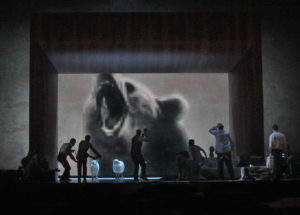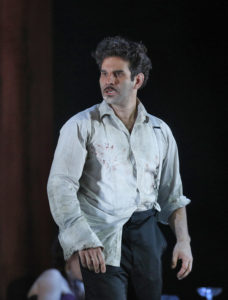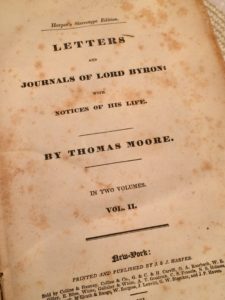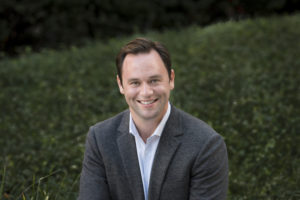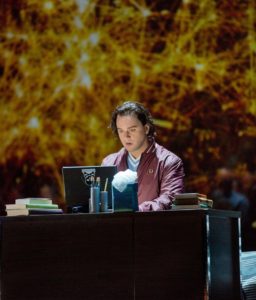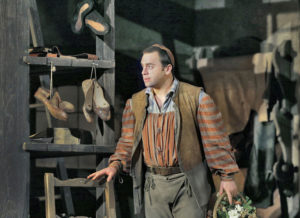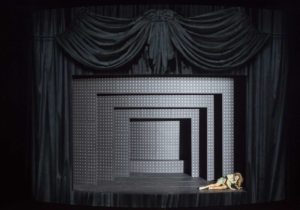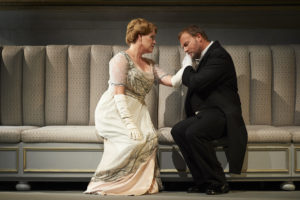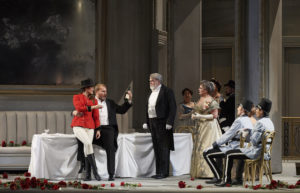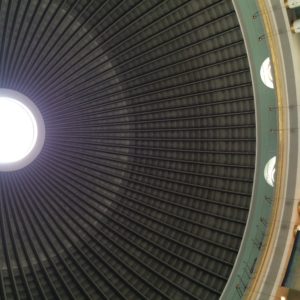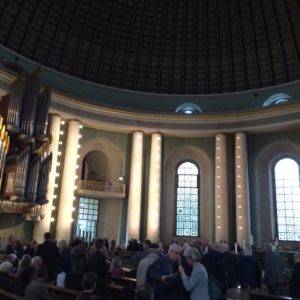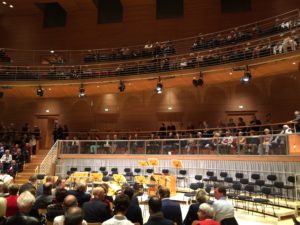“Die Zeit, die ist ein sonderbar Ding,” ponders Die Marschallin early in Strauss’s Der Rosenkavalier; indeed time and its passage are phenomena keenly felt by a great many these first four weeks of 2025. Time can sometimes pass too quickly, a cause for alarm (“Manchmal hör’ ich sie fliessen – unaufhaltsam”); time can also slow to a snail’s pace, a water’s drop, a faucet that only pours tepid. “Welcome to the 87th day of January!” one contact wryly wrote in a recent note. The experience of live art and music –opera – underlines the feeling of time speeding up, slowing down, or stopping altogether, whether through thoughtful engagement or immediacy, via sheer beauty and wonder, the use of escapism, or sometimes, rarely, all of these elements combined.
Few artists excelled that integration so clearly the way Otto Schenk did. The famed theatre artist passed away on January 9th at the age of 94. Schenk led and acted in numerous opera presentations throughout Europe and North America throughout the 1960s, 70s, 80s, and 90s, appearing in the annual “Jedermann” presentations in Salzburg and staging Wagner’s Ring Cycle with a literalist approach (including Viking-style regalia), a presentation remembered and revered by a great many. As writer Ed Pilkington noted in a 2009 article in The Guardian, “Met regulars have come to adore the production almost as much as the opera.” For many, that Ring Cycle was the absolute embodiment of Wagnerian Gesamtkunstwerk, and provided a memorable introduction to – and resultant lifelong immersion in – Valhalla.
My mother, a diehard devotee of Italian opera, was one of those entranced fans, and she saw this production at The Met in 1990. (I was off seeing a very unusual off-Broadway production of Hamlet, natch.)
Schenk’s overall directorial oeuvre captured an epoch in opera that still largely colours mainstream perceptions of the art form, and I find it striking and quite profound that his passing came on the same day as what would have been opera impresario Rudolf Bing’s birthday (9 January). Bayerische Staatsoper in Munich hosted ten different Schenk productions, including his much-vaunted Das Rosenkavalier, last performed there in 2021. Dramaturg Malte Krasting has written a lovely tribute, describing Shenk as having “lived the theatre like no other.” (Zum Tod von Otto Schenk, Bayerische Staatsoper 10 January 2025) Wiener Staatsoper opened its online archive to the many productions Schenk did with them (L’elisir d’amore; Fidelio; Das Rosenkavalier; Andrea Chenier; Die Meistersinger von Nürnberg; Das Schlaue Füchslein; Die Fledermaus) – enjoy free access now until Friday (31 January).
A divisive new production of Die frau ohne Schatten opened at Deutsche Oper Berlin earlier this week. Featuring Clay Hilley and David Butt Philip sharing the role of The Emperor, Daniela Köhler as The Empress, Jordan Shanahan as Barak, Catherine Foster as Barak’s wife, and Marina Prudenskaya as The Nurse, Strauss’s heavily symbolic work (with libretto by Hugo von Hofmannsthal) feels, more and more through the passage of that old bugbear time, like some Rorschach Test of conscious and/or unconscious notions of sexual politics and the privilege therein (not unlike Don Giovanni) – though I wonder if that’s also what Strauss/Hofmannsthal might have actually intended. FT‘s Shirley Apthorp criticized the lack of political stance and specifically the lack of feminist approach by director Tobias Kratzer, while Radio3‘s Andreas Göbel says Kratzer’s ignoring the fairytale elements renders his approach insufficient for the opera’s considerable (four-hour-plus) running time; Concerti‘s Roland H. Dippel writes that Kratzer’s direction smartly highlights “emotional details of characters caught up in their walls of conflict.” (Backstage Classical has a good collection of other reviews, complete with quotes and links.) Albrecht Selge offers a poetic analysis in VAN Musik, cleverly tying Berlin’s recent budget cuts (specifically to its opera houses) with thoughtful observations on the respective presentations of humour , hurt, and human warmth used in Kratzer’s presentation. (“Stofftier, aus dem die Träume sind“, VAN Musik, 28 January 2025) FroSch is conducted by outgoing General Music Director Donald Runnicles and runs through 11 February.
Morgiane, ou, Le Sultan d’Ispahan by 19th century composer Edmond Dédé is finally (finally!) receiving its world premiere early next month, courtesy of Opera Lafayette in partnership with OperaCréole . The work, considered to be the earliest surviving opera by a Black American composer, is based on the story of Ali Baba and the Forty Thieves; it will make its world premiere on Monday (3 February) at Lincoln Theatre in Washington before moving on to presentations in New York on Wednesday (at Rose Theater, Lincoln Center), and Maryland on Friday. Patrick Dupre Quigley, artistic director designate of the Washington-based Opera Lafayette (who is leading the work on its tour) commented earlier this week to San Francisco Classical Voice that the opera is “the most important piece of American music that no one has ever heard.” (“Bringing Morgiane, the first African American opera, back to life“, Katelyn Simone, San Francisco Classical Voice, 27 January 2025)
Still with streaming: Opera Vision recently hosted a broadcast of the 2000 opera Judith by Frano Parać from Croatian National Theatre. Based on the biblical tale of Judith and her murder of the general Holofernes in order to save her people, the new, recent Judith presentation marked the 500th anniversary of the death of Marko Marulić, considered the father of Croatian literature and author of Judita, the first literary epic in Croatian language published in 1521. The production was helmed by Snježana Banović with musical direction by Opera choirmaster Ivan Josip Skender; it can be streamed now through 17 July 2025.
Rundfunk Sinfonieorchester Berlin presented a programme of moving works to mark International Holocaust Remembrance Day on Monday (27 January); it included the premiere of a work by composer Berthold Tuercke. “Aus Geigen Stimmen” incorporated instruments from Violins of Hope, an historic collection comprised of stringed instruments whose owners were murdered in the Holocaust. The piece itself interweaves solos for the instruments with choral writing (performed by RIAS Kammerchor) and spoken texts that mix Yiddish songs, poetry, and first-person accounts from the time. Monday’s concert at the Philharmonie also featured Gideon Klein’s Partita for string orchestra, created in the Theresienstadt ghetto by Klein just nine days before his deportation to Auschwitz in the mid 1940s, and an orchestral arrangement of String Quartet No. 5 by Mieczysław Weinberg, who, at the time of the work’s composition in 1945, had no idea his family had been murdered at Treblinka. Amidst the darkness of this programme there is a ferocious and very palpable will to live laced deeply within each work. (“Violins of Hope: Konzert zum 80. Jahrestag der Befreiung des KZ Auschwitz“, Deutschlandfunk Kultur, 27 January 2025)
That sense of “Lebenswille” is also woven in Exile (Alpha Classics), a new album of works by (mostly) exiled composers released earlier this week. Featuring violinist Patricia Kopatchinskaja and cellist Thomas Kaufmann together with Camerata Bern, the thirteen-track album deftly mixes various sounds and cultures through stellar interpretations of works by Schnittke, Schubert, Ysaÿe, Andrzej Panufnik, and Ivan Wyschnegradsky that explore notions of distance, separation, identity, and isolation. Its opening track, “Kugikly for Violin and Ukrainian and Russian Panpipe” is both a dance (complete with zesty shouts) and a kind of a manic dirge, and, like the entire album, a needed symbol of hope.
What’s the connection between video games and opera? The ties run deeper than one might assume; they were examined with fascinating clarity recently by writer/translator Angelica Frey at JSTOR. Using quotes from music writer Tim Summers’ intriguing “Opera Scenes in Video Games: Hitmen, Divas and Wagner’s Werewolves” (published in Cambridge Opera Journal in 2017) Frey traces the ties between the two forms back to 1994, when the game Final Fantasy VI revolved around a would-be abduction of an opera star (“Maria” – who could it be?). Using contemporary references, Frey writes that “In a way, both Assassin’s Creed and Hitman challenge the assumed highbrow status of opera and the assumed lowbrow status of gaming, suggesting a more complex and compatible negotiated relationship through their fusion in the game worlds.” (“Why Are Video Games So Fond of Opera?”, Angelica Frey, JSTOR Daily 21 January 2025)
Still with JSTOR, a timely little bit of history examining the relationship between humour and fascism in mid-20th-century Italy. Wait, there’s a relationship at all? Why yes – and sometimes it isn’t very funny, or maybe it is, but not in that funny-haha way. As Livia Gershon notes, “Journalist Leo Longanesi is said to have invented the slogan “Mussolini is always right” as a joke only to have it adopted by the regime while Longanesi moved into creating Fascist propaganda.” Hmmm… plus ça change? (“Laughing With the Fascists“, Livia Gershon, JSTOR Daily, 3 January 2025).
Relatedly, and finally: the fascinating history of Carl von Ossietzky, an influential German journalist especially active in the early 1930s. He received the 1935 Nobel Peace Prize for reports that exposed the clandestine operations of the German government in violating the Treaty of Versailles with rearmament. Those exposes landed him in a concentration camp more than once and he endured torture – as well as carefully orchestrated tours for American press. Writer Kate McQueen traces the prison meeting between Ossietzsky and Hearst Press Group correspondent Hubert Renfro Knickerbocker in detail; she also outlines the related histories of his family and colleagues, the questions that surrounded his receiving the Nobel (the ceremony for which the Norwegian royal family chose not to attend), and his tragic death from tuberculosis after five years of imprisonment, in 1938. As McQueen notes, “Ossietzsky’s articles were those of an advocate for a fledgling democracy stretched to the breaking point by increasingly radical political factions. He didn’t want the young republic to die on his watch.” (“The Good Traitor: The Journalist Who The Nazis Could Not Silence“, Kate McQueen, The Atavist November 2024).
Until next month: take deep breaths in cold air, drink hot tea in silence, read poetry, and say the word “hoffnung” – out loud, to yourself; often.


